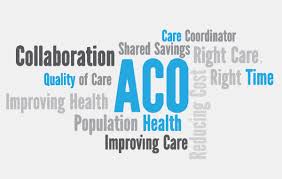 Accountable care transition is still a hot topic in healthcare – and it’s likely to remain so for many years to come as the reform continues. For many organizations, taking the leap to accountable care status might seem inadvisable – is it just a fad? Are these changes here to stay? If they are, is my organization ready?
Accountable care transition is still a hot topic in healthcare – and it’s likely to remain so for many years to come as the reform continues. For many organizations, taking the leap to accountable care status might seem inadvisable – is it just a fad? Are these changes here to stay? If they are, is my organization ready?
There are a lot of questions to ask, but organizations who are in this stage of their accountable care deliberations should rest assured that they aren’t alone – many organizations all across the U.S. are asking themselves that same question.
While the specifics for each healthcare system will vary, there are some foundational questions that you can start asking today to assess your organization’s readiness to make the transition to accountable care.
Can You Afford it? – Accountable Care
Forefront on any organization’s mind is the upfront cost and long term investment involved in ACO status. It’s true that there is some necessary upfront costs to becoming an ACO, but the return on investment is projected to be far more sustainable than current methodologies. While there’s always a risk with any investment, ACOs are based in sustainable practices – and their success is dependent on the overall reform and ongoing innovation expected of the entire healthcare landscape. ACOs will thrive in the environment that healthcare, overall, should be aspiring to. That is to say, patient-centered care, quality reporting metrics and innovative technology. Those upfront costs, especially where EMRs are concerned, might be off-putting to an organization that is hoping to make the ACO transition, but you don’t necessarily have to break the bank on EMR technology – if you’re smart, you’ll invest more time, money and energy in the infrastructure and training for an electronic medical record then you will the software itself.
Have You Considered Your Patients – Accountable Care
Before you transition to ACO status you need to understand the population of patients you serve, what their expectations are and what they need. It’s not enough anymore to have a one-size-fits-all approach. Patients expect, and deserve, care that is tailored to not just their health needs, but their socioeconomic status as well. Of course, many think in today’s world that kind of care is a pipe dream – but for the well-oiled healthcare system that is self-aware, perhaps even thrifty, and certainly open to reform and innovation, it is most certainly not all that far-fetched. Hesitation to embrace change is typically the result of either fear of failure or burn out; the exhausted, overworked healthcare professional doesn’t want to expend anymore precious time and energy “learning” something when they’re strapped enough just trying to see patients and document.
The truth is, if you’re finding in your organization that doctors, nurses and allied health staff are resistant to change, you need to find out why and address those underlying concerns long before you begin implementing changes. Are they resistant because they don’t understand why the change is necessary? Are they afraid they won’t have enough training or time to implement the changes required of their practice? Are they burnt out, frustrated, feeling under-supported by the administration? If these attitudes persist, then the failure of the ACO transition won’t be the fault of the ACO structure and vision itself – but the healthcare systems operational readiness. If the clinical teams are too overworked and perhaps even bitter – but the administration is gung-ho to attempt to make changes that no one on the floor is ready for, failure would be expected. Remember, you have to turn over the soil before you can plant any crops that you expect to grow and provide for you.
Are You Familiar with Population Health and Accountable Care?
When it comes to ACOs, it’s not going to be enough to have a keen eye and a good handle on your practice only – you’ve got to work to understand how you and your organization fit into the larger picture of your community. Do you have metrics that you track on the regular to see how you’re stacking up against other hospitals or healthcare systems in your state or region? Are your patients more likely to have post-hospital complications than, say, a hospital fifty miles away? Of the metrics that you track, how many are patient-reported? When you follow up with patients after surgery, do they report satisfaction with the services and treatment they received? If not, what needs improvement – and what would it require of you to make those changes? It probably wouldn’t surprise you to hear that those changes have to start with attitude – we all have some bad habits we’d like to break, but it’s not easy. Did you know that it takes at least a month of consistent effort to change a habit? If you’ve ever known anyone trying to quit smoking, start a diet or exercise on a regular schedule you know that those first few weeks are often grumpy at best – and pure torture at worst. Many of us are creatures of habit at home and at work – but when someone else, someone external, comes in and looks at our habits with a bit of perspective, we might find that just because “we’ve always done it this way” doesn’t mean that it’s the best way. Being open to change allows for those positive improvements that help us and our patients. Of course, it’s not easy – which is why support is needed. Not just from within your hospital or healthcare system, but perhaps even externally too. A change in perspective can, at times, make all the difference.
